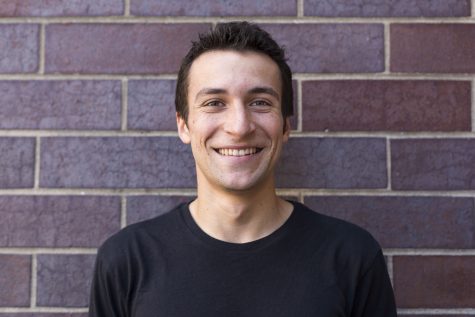[UPDATE] ‘Ban the Box’ scores victory with New York City law
November 3, 2015
Updated – Nov. 3, 12:08 a.m.
President Obama announced a new order on Monday telling federal agencies to “ban the box” on all federal job applications.
Citing stats that 2.2 million Americans are behind bars right now —the majority of whom are black and Latino — the President said that many of these people have trouble getting their foot in the door when they come out.
“We’ve got to make sure Americans who have paid their debt to society can earn their second chance,” Obama said.
He announced new grants to help formerly incarcerated people rehabilitate back into society. He also said that federal agencies would be banning the box among some of the most competitive jobs in federal agencies.
“The federal government, I believe, should not use criminal history to screen out applicants before we even look at their qualifications,” Obama said. “We can’t dismiss people out of hand simply because of a mistake that they made in the past.”
The President added that a federal bill is working its way through the Senate that will enact policies that aid the fight to “ban the box.”
Original article:
Job applicants in New York City will no longer have to disclose past criminal convictions until the final stages of the hiring process, thanks to a new law that went into effect last Tuesday.
This legislation is part of the ongoing campaign to “ban the box” in order to widen opportunities to those hoping to reintegrate into society after incarceration. Passed by the City Council in June and signed into law by Mayor de Blasio this past July, the Fair Chance Act makes it illegal for job applicants to be denied a job because of criminal history.
“This bill opens the door to jobs for New Yorkers who have already paid their debt to society, rather than condemning them to a grim economic future,” de Blasio said in June. “Now, all applicants will get a fair shot at the opportunities that can lead them on a pathway to success.”
The act bans ads for jobs that require background checks and inquiries about a person’s criminal record on job applications and in job interviews. The law stipulates that any employer can only inquire about criminal history after a conditional job offer has been extended.
While the bill is a step forward in efforts to make the rehabilitation and reintegration process back into society more sustainable and permanent, some find the bill to be far from perfect. Rahani Green, CAS junior and vice president of the Black Students Union at NYU, said she finds this law fights the symptoms of mass incarceration, not the virus.
“Looking at this as the answer to the disproportionate incarceration of black people would be a further injustice because it doesn’t change the fact that criminal laws and the enforcement of such laws are skewed to disenfranchise and incarcerate black people,” Green said.
The bill does not prevent employers from rescinding a job offer if they have a problem with an applicant’s criminal history. However, a potential employer must provide a written explanation for denying employment and demonstrate how an applicant’s criminal record may pose a risk to the job.
Green agreed that this law is a step in the right direction, but added that she would like to see less reliance on the “War on Drugs” as a tool for discrimination against black Americans.
“The heavy policing of black and Latino spaces need to change, and policies such as Stop and Frisk that disproportionately affect blacks and Latinos need to not exist,” Green said.
Emma Pliskin, an organizer for the Incarceration to Education Coalition, said the Fair Chance act increases the chance that formerly incarcerated people will have the confidence to apply for more jobs and sets a precedent for future ban the box campaigns.
However, Pliskin added that much work has to be done, echoing Green’s concerns that the law, while an admirable product of VOCAL-NY’s work, focuses on the wrong problem.
“Society doesn’t need to assimilate formerly incarcerated people back into its racist ‘folds,’ Pliskin said. “Society needs to massively change its institutions, systems, and cultures which push out people of color, trans and queer people, immigrants and poor people.”
A version of this story appeared in the Monday, Nov. 2 print issue. Email Alex Bazeley at [email protected].
























































































































































